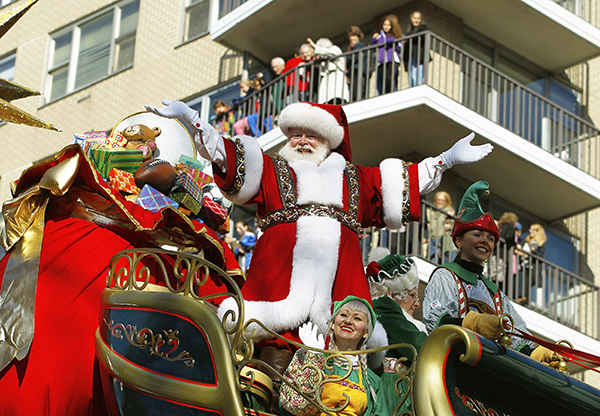10 Reasons Why We Celebrate Christmas
Here are 10 compelling reasons behind the celebration of Christmas, accompanied by intriguing insights into each aspect:

Religious Observance
Christmas serves as a sacred occasion for Christians worldwide, commemorating the birth of Jesus Christ, as recounted in the New Testament of the Christian Bible. This event symbolizes the belief in God’s manifestation in human form.
Fascinating Fact: Although the precise date of Jesus’ birth remains unspecified in biblical texts, December 25th was selected by early Christian leaders to coincide with existing pagan festivities linked to the winter solstice.
Cultural Phenomenon
Over time, Christmas has transcended its religious origins to become a widely celebrated cultural holiday embraced by individuals from diverse religious backgrounds. Practices like exchanging gifts, indulging in feasts, and adorning homes with festive decorations have become customary.
Engaging Tidbit: Many Christmas customs, including tree decoration and gift-giving, trace their roots back to ancient pagan winter celebrations that predate the advent of Christianity.
Family Togetherness
Christmas provides a cherished opportunity for families to unite, partake in shared meals, exchange heartfelt gifts, and forge enduring memories together.
Insightful Trivia: The tradition of the elaborate Christmas dinner, featuring roast turkey and accompanying trimmings, gained popularity during the Victorian era, influenced in part by Charles Dickens’ portrayal of festive gatherings in “A Christmas Carol.”
Spirit of Generosity
At the heart of Christmas lies the spirit of generosity, prompting individuals and organizations to engage in acts of kindness, charity, and goodwill toward others.
Noteworthy Detail: The custom of hanging stockings by the fireplace originates from the legend of Saint Nicholas, who purportedly clandestinely bestowed gifts upon the needy by dropping gold coins down chimneys.
Sense of Community
Christmas fosters a sense of communal belonging as people come together to engage in shared activities like caroling, attending church services, and participating in local holiday events.
Interesting Anecdote: The Royal Albert Hall in London hosts the world’s largest Christmas carol service annually, drawing in thousands of enthusiastic participants.
Economic Impetus
Christmas serves as a significant driver of economic activity, with heightened consumer spending on gifts, decorations, culinary delights, and travel significantly contributing to the economy.
Historical Insight: The tradition of exchanging Christmas cards dates back to the 19th century, with the first commercially produced cards making their debut in London in 1843.
Seasonal Merriment
Aligning with the winter season in the Northern Hemisphere, Christmas brings forth a myriad of festive activities – example: ice skating, sledding, and partaking in bustling holiday markets.
Curious Fact: The practice of adorning evergreen trees indoors during winter predates the Christian era and symbolizes anticipation for the return of spring.
Gastronomic Delights
Christmas is synonymous with a cornucopia of delectable treats and traditional dishes, ranging from mince pies and gingerbread cookies to indulgent eggnog and rich fruitcake.
Fun Fact: Eggnog, a creamy concoction comprising milk, eggs, sugar, and spirits like rum or brandy, has delighted holiday revelers since colonial America.
Aesthetic Spectacle
Christmas embellishes homes, streets, and public spaces with a kaleidoscope of colorful lights, ornate ornaments, festive wreaths, and poignant nativity scenes, infusing the atmosphere with joyous merriment.
Remarkable Detail: The tallest recorded Christmas tree, towering at 221 feet, graced a Washington shopping mall in 1950, bedecked with a staggering array of 14,600 twinkling lights.
Period of Reflection and Renewal
As the year draws to a close, Christmas prompts introspection on past experiences while instilling a sense of hope, peace, and goodwill toward the future, symbolizing the promise of a fresh start.
Trivia: The tradition of crafting New Year’s resolutions traces its origins back to ancient Babylonian culture, where individuals made pledges to the gods at the onset of each new year.












